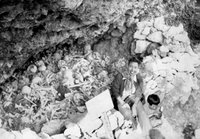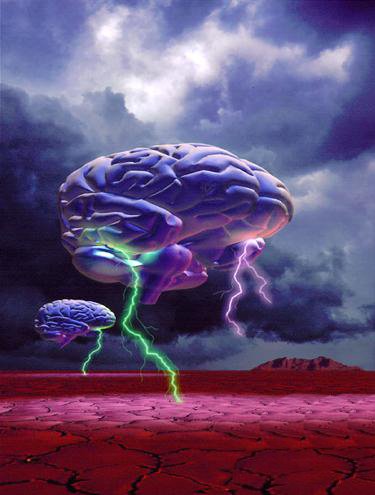Memoir
Ant life
I love big cities, and if you think of The Big City as an anthill, then this is my life among the ants.
The thing I remember first about ants is their smell. It is a moment concisely, but completely, encoded in one brief olfactory memory: I was five, maybe six, and had recently lost an important part of my innocence. For at that point in my short life, without ever having been exposed to death or dying -- without ever knowing someone who once was and then simply wasn't, I became terrifyingly aware that it all ends. I knew with crushing certainty that I would die. And I knew, equally certainly, what death meant -- the utter dissolution of everything that was me.
I knew how it would come, too, in quantum leaps. Now I'm six. Snap my fingers and I'm older. Snap again, I'm a teenager. Snap again, as old as my parents. And again, and I'm an old, old man. Snap! Gone! So fast, so fast! I remember the terror that came with my horrible discovery. And although I don't recall how I managed to tuck my horrible knowing away in some seldom visited wormhole in my mind, tuck it away I did, for a time.
And then it was summer. Hot, dry, blue-sky, endless prairie summer. The first summer I was truly aware of as a separate, special season, part of an endlessly repeating cycle. My first real summer of knowing it was not my only, or my last summer. I was mooching around by the river, by myself, simply enjoying summer when I noticed the smell -- a wonderful, warm, pungent smell, entirely different from anything I'd ever smelled before. Not offensive, just immensely, uniquely, interestingly different. I soon spotted the source: a small mound made of a mixture of sand and mud and small twigs. An anthill -- and it was overflowing with ants.
I bent down close to smell, to confirm that this truly was the source of my magnificent odour -- and it is that moment that is forever locked in memory. My senses merged. As I gazed at the ants, I was simultaneously aware of the heat of the summer sun on my skin, and of a strange droning that pushed all the other sounds away. And yet there was no sound from the anthill. It was the odour. It was too much for one simple sense, so it swamped my hearing too. It hummed.
To this day, I find it hard to comprehend the complexity of that moment. It simply hummed. It was a moment of immanence. Those ants were life, and their life hummed and filled the universe. For a moment, I was terrified, both by the strangeness of my intertwining senses, and by the sudden recollection that I was going to die.
And then the terror was gone. And there was I, watching and marveling at the ants. Does it seem odd that I use a bucolic scene to express my love of Big City life? Well, like Walt Whitman, I don't mind the contradiction. Life -- even the simple life of an anthill -- has a richness, an intricacy, a redolence... a hum that fills the world. Life is action, and that's enough meaning for me. I'm too fascinated to stop watching and I treasure those rare moments when the Big City abducts my senses. Big cities are where life really hums.
Labels: ants, big cities, hum, synaesthesia, transcentdence


